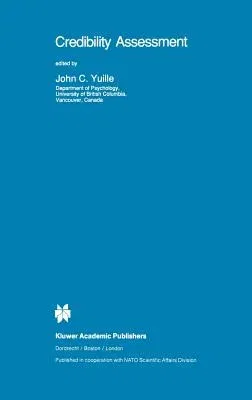Credibility Assessment (1989)Hardcover - 1989, 30 April 1989

Qty
1
Turbo
Ships in 2 - 3 days
In Stock
Free Delivery
Cash on Delivery
15 Days
Free Returns
Secure Checkout

Part of Series
NATO Science Series D:
Part of Series
Studies in Operational Regional Science
Part of Series
NATO Science Series: D:
Part of Series
NATO Science Series D: (Closed)
Print Length
198 pages
Language
English
Publisher
Springer
Date Published
30 Apr 1989
ISBN-10
0792301951
ISBN-13
9780792301950
Description
Product Details
Book Edition:
1989
Book Format:
Hardcover
Country of Origin:
US
Date Published:
30 April 1989
Dimensions:
24.03 x
16.36 x
2.06 cm
ISBN-10:
0792301951
ISBN-13:
9780792301950
Language:
English
Location:
Dordrecht
Pages:
198
Publisher:
Series:
Weight:
508.02 gm